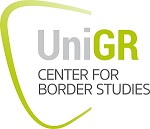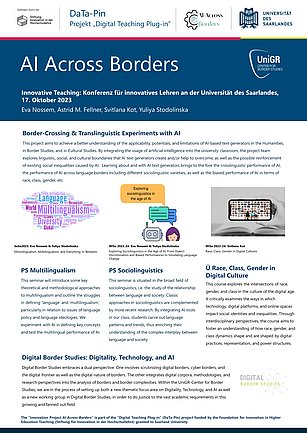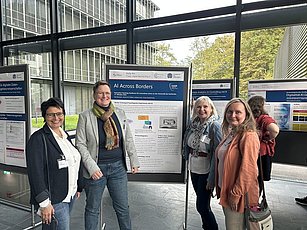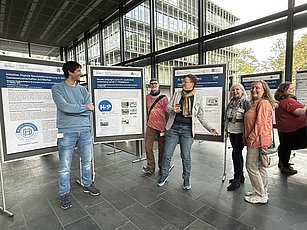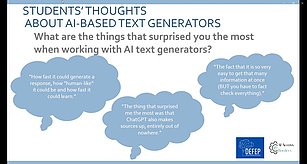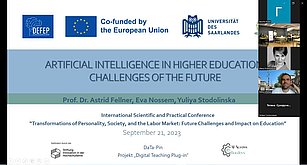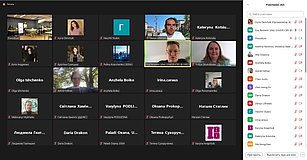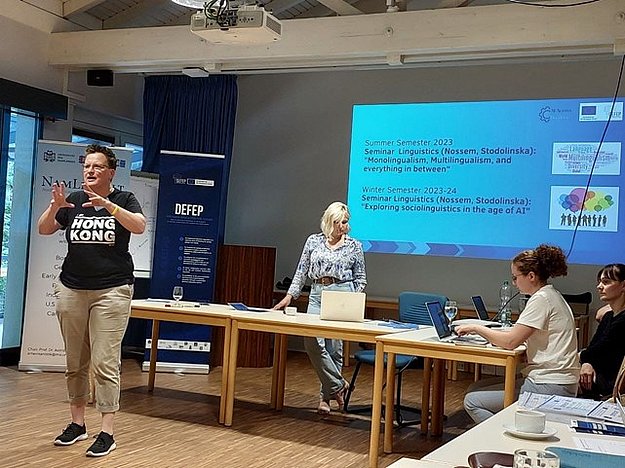Project Team
funding period
1 April 2023 - 31 March 2024
AI Across Borders
DataPin Project in Innovative Teaching
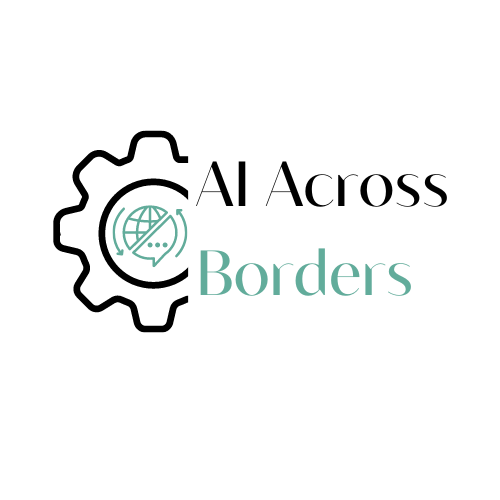
This project aims to achieve a better understanding of the applicability, potentials, and limitations of AI-based text generators in the Humanities, in Border Studies, and in Cultural Studies. By integrating the usage of artificial intelligence into the university classroom, the project team explores linguistic, social, and cultural boundaries that AI text generators create and/or help to overcome, as well as the possible reinforcement of existing social inequalities caused by AI. Learning about and with AI text generators brings to the fore the crosslinguistic performance of AI, the performance of AI across language borders including different sociolinguistic varieties, as well as the biased performance of AI in terms of race, class, gender, etc.
The Project “AI Across Borders” headed by Prof. Astrid M. Fellner and Eva Nossem is currently implemented by a team of scholars at the UniGR-Center for Border Studies and the department of English and American Studies at Saarland University within the “Digital Teaching Plug-in” (DaTa-Pin) project at Saarland University.
Activities & News
Poster Presentation at the DaTa-Pin Conference on Innovative Teaching, Saarland U
Eva Nossem, Astrid Fellner, Svitlana Kot, and Yuliya Stodolinska
17 October 2023
Eva Nossem, Astrid Fellner, Svitlana Kot, and Yuliya Stodolinska participated in a poster session at the DaTa-Pin conference on Innovative Teaching at Saarland University and shared insight into the work in the AI Across Borders project.
Presentation at the DEFEP Conference at Karazin Khariv U (hybrid)
Yuliya Stodolinska, Eva Nossem, and Astrid Fellner
21 September 2023
Yuliya Stodolinska, Eva Nossem, and Astrid Fellner gave a talk entitled "Artificial Intelligence in Higher Education: Challenges of the Future," in which they presented the challenges of integrating AI into teaching during the DEFEP conference "Transformations of Personality, Society, and the Labor Market: Future Challenges and Impact on Education" at V. N. Karazin Kharkiv National University (hybrid).
Presentation at the DEFEP Study Visit at Saarland U
Eva Nossem & Svitlana Kot
13 July 2023
Eva Nossem and Svitlana Kot gave a talk entitled "Presentation of Best Practice Examples: Case Study "AI Across Borders: Integrating ChatGPT into Teaching," in which they presented the work of the AI Across Borders project during the DEFEP Study Visit at Saarland University.
Courses
Exploring Sociolinguistics in the Age of AI: From Dialect Discrimination and Biased Performances to Simulating Language Change
Nossem, Eva; Stodolinska, Yuliya
Winter Semester 2023-24
This seminar is situated in the broad field of sociolinguistics, i.e. the study of the relationship between language and society, drawing also on the theories of Gender, Queer, and Cultural Studies. As Fishman put it, sociolinguistics deals with “who speaks (or writes) what language (or what language variety) to whom and when and to what end” (1972: 46). In this seminar we examine the role of language in a variety of social contexts in order to develop insights into how language works and how it can be used to signal identities and to convey social meaning. We investigate the positioning of categories such as race, class, and gender in social and historical contexts and analyze how individuals negotiate these positionings. This class focuses on linguistic variation in a two-fold way, i.e. by focusing both on language use and on the user. Students will learn the basic terminology and main strands of sociolinguistic research; classic approaches in sociolinguistics will be complemented by more recent research. By integrating AI tools like ChatGPT in our class, students can carve out language patterns and trends, thus enriching their understanding of the complex interplay between language and society.
References:
Eckert, Penelope. 2012. Three waves of variation study: The emergence of meaning in the study of sociolinguistic variation. Annual Review of Anthropology. 41. 87-100.
Eckert, Penelope. 2018. Meaning and Linguistic Variation: The Third Wave in Sociolinguistics. Cambridge: Cambridge UP.
Holmes, Janet & Nick Wilson. An Introduction to Sociolinguistics, 5th ed. New York: Routledge.
Meyerhoff, Miriam. 2006. Introducing Sociolinguistics. London: Routledge.
Trudgill, Peter. 2000. Sociolinguistics: An Introduction to Language and Society. 4th ed. London: Penguin.
Cultural Studies II - North America: Race/ Class/ Gender in Digital Culture
Kot, Svitlana
Winter Semester 2023-24
This course explores the intersections of race, gender, and class in the culture of the digital age. It critically examines the ways in which technology, digital platforms, and online spaces impact social identities and inequalities. Through interdisciplinary perspectives, the course aims to foster an understanding of how race, gender, and class dynamics shape and are shaped by digital practices, representation, and power structures. This will require investigations of diverse cultural arenas and media, among them music, film, television, and everyday lived experience as they are circulated in the digital spaces. Students will be assessed on their participation in classroom discussions, a team presentation and work on the e-learning platform OLAT. The course will use ChatGPT in addition to conventional classroom discussions to enhance student participation and offer a dynamic platform for examining racial, gender, and class issues outside of the physical classroom. Students can hone their critical thinking abilities by interacting with ChatGPT and participating in discussions, examining biases, and challenging presumptions in the online environment. In order to promote a deeper knowledge of the impacts of race, gender, and class in digital contexts, they can investigate the ethical implications of AI technology and participate in discussions about responsible AI use.
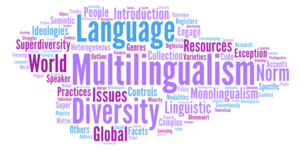
Monolingualism, Multilingualism, and everything in between
Nossem, Eva; Stodolinska, Yuliya
(Summer Semester 2023)
Multilingualism is the norm, not the exception. People draw on a vast array of linguistic resources as they engage in heterogeneous linguistic practices.
Multilingualism […] should not be seen as a collection of ‘Languages’ that a speaker controls, but rather as a complex of specific semiotic resources, some of which belong to a conventionally defined ‘language,’ while others belong to another ‘language.’ The resources are concrete accents, language varieties, registers, genres, modalities […] (Blommaert 2010: 102)
This seminar offers an introduction to the many facets of multilingualism in a linguistically diverse world. We will provide an introduction to some fundamental issues in multilingualism research and give an overview of much-discussed key concepts such as diglossia, minority and majority languages, heritage languages, heteroglossia, code-switching, translanguaging, border languaging, and many more.
This seminar will introduce some key theoretical and methodological approaches to multilingualism and outline the struggles in defining ‘language’ and ‘multilingualism’ (and plurilingualism, and plurimultilingualism for that matter). Focusing on standard languages, global languages and language making (Krämer 2023 forthcoming) helps questioning the boundaries of ‘languages.’ We will also address issues of language policy and language ideologies when tackling the interplay of individual and societal multilingualism.
Readings:
Blommaert, Jan, and Ben Rampton. 2016: “Language and Superdiversity.” MMG Working Paper 12-09. www.mmg.mpg.de/workingpapers.
Coulmas, Florian. 2018: An Introduction to Multilingualism: Language in a Changing World. Oxford: Oxford UP.
Gramling, David. 2016: The Invention of Monolingualism. New York and London: Bloomsbury.
Horner, Kristine, and Jean-Jacques Weber. 2018: Introducing Multilingualism. A Social Approach. 2nd ed. London: Routledge.
Nossem, Eva. 2023: Border Languaging: Multilingual Practices on the Border. Nomos
an activity of the UniGR-Center for Border Studies at Saarland University
